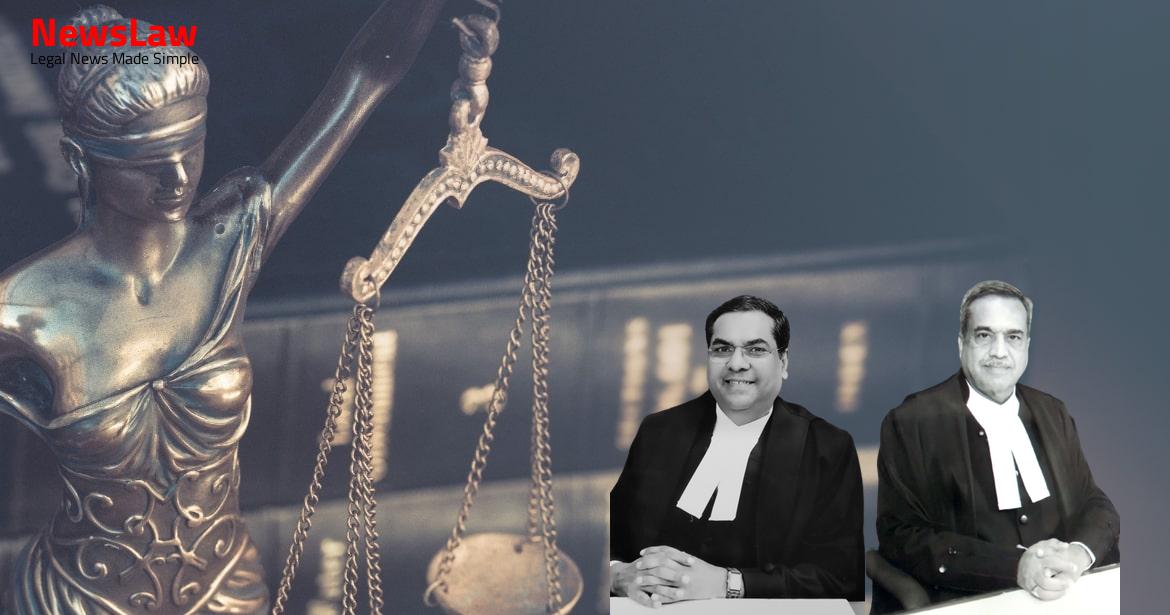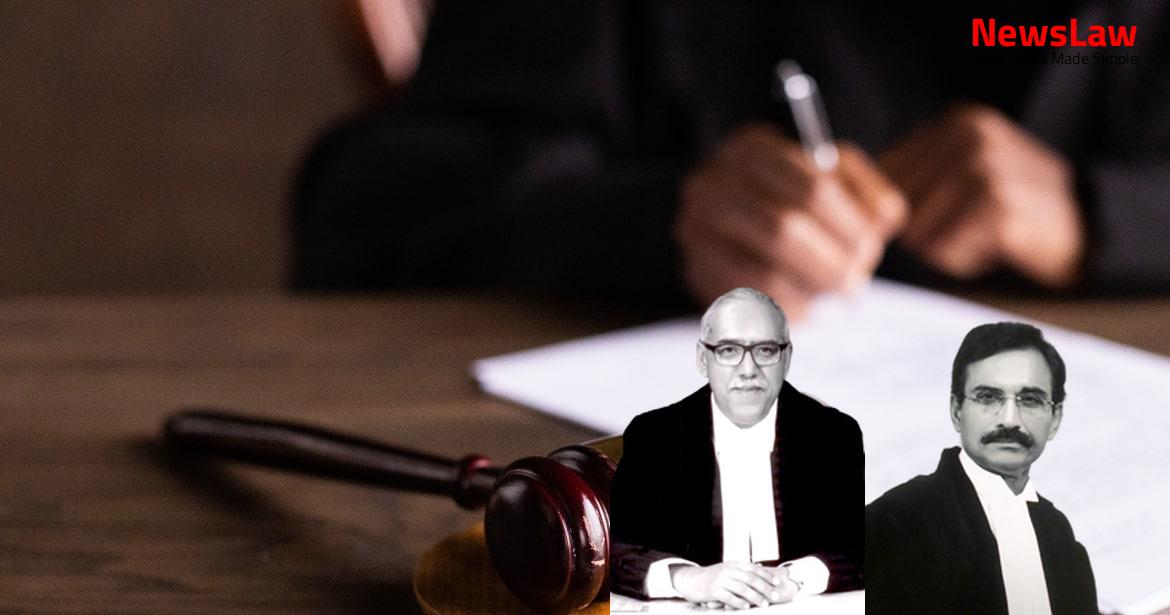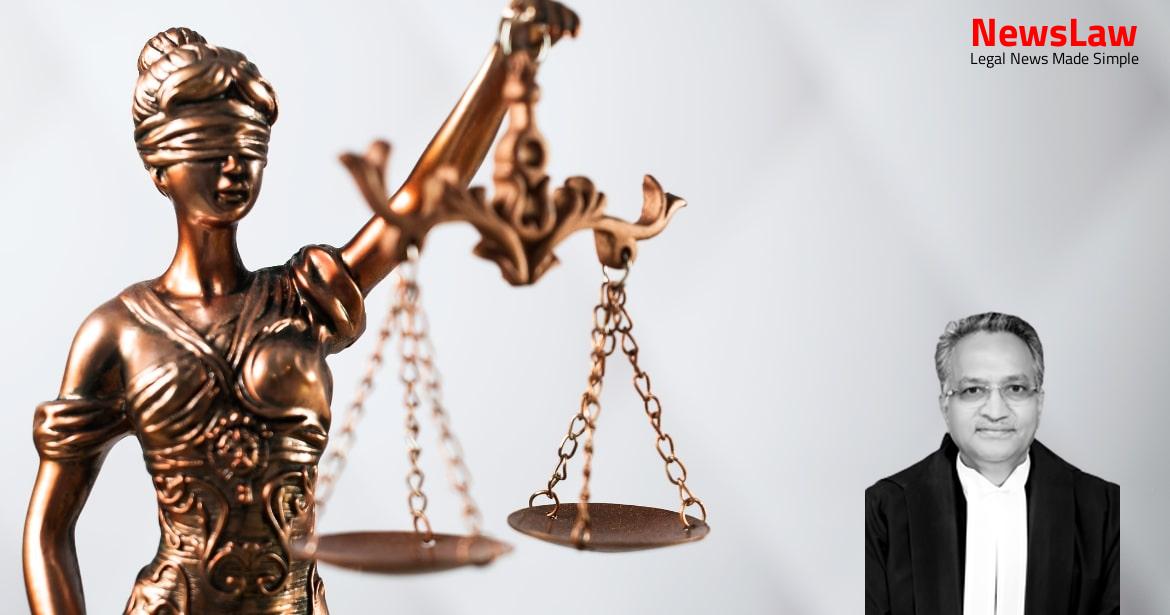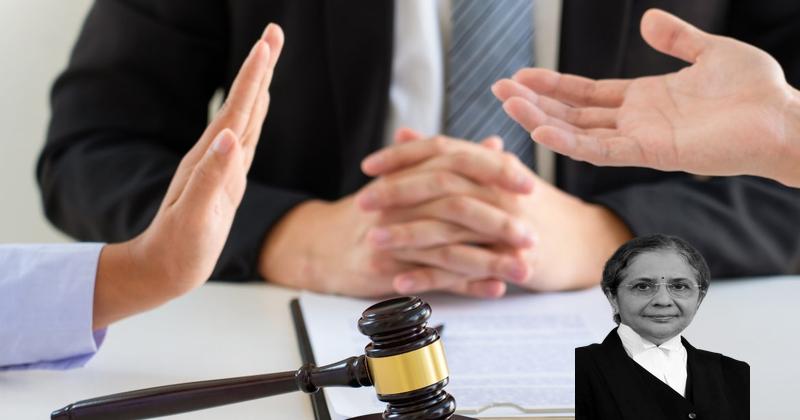Delve into a recent legal case where the High Court’s decision to convert a murder conviction to grievous hurt came under scrutiny. The court’s meticulous legal analysis and examination of evidence regarding the cause of death, injuries sustained, and vital body parts are paramount in understanding the nuances of the case.
Facts
- The State of Uttar Pradesh filed an appeal against the High Court’s decision to convert the conviction from Section 302 IPC to Section 326 IPC.
- The High Court based its decision on the fact that the deceased died six days after the incident and no head fracture was found.
- The High Court imposed a two-year sentence under Section 326 IPC due to the 36-year-old occurrence of the incident.
- The State, through Senior Advocate Shri Rana Mukherjee, argued that the High Court erred in converting the conviction.
- The trial court convicted Lal Bahadur, Sher Singh, Shastri, and Jai Dutt for different offences under IPC, including Section 302.
- Jai Dutt was sentenced to life imprisonment for the offence under Section 302 IPC.
- Accused persons were charged under Section 302 read with Section 34 of the IPC.
- Accused no.1 Jai Dutt was charged under Section 302 IPC.
- Prosecution examined witnesses including eye-witnesses PW1 and PW2.
- Post-mortem report by Dr. P.R. Mishra was brought on record.
- Accused persons reached deceased’s agricultural field and started abusing him.
- Deceased was beaten by accused persons with different weapons.
- During the appeal, accused Lal Bahadur and Sher Singh expired, hence appeal abated for them.
Also Read: Ruling on Circumstantial Evidence in Murder Case
Arguments
- Deceased succumbed to head injury, indicating murder.
- Conversion of conviction from Section 302 IPC to Section 326 IPC deemed improper.
- High Court did not consider injuries and cause of death properly.
- Internal injuries leading to death can still constitute murder.
- Accused instigated quarrel, used weapons, and caused injuries.
- Absence of head fracture does not negate offence under Section 302 IPC.
- Eye witnesses PW1 and PW2 deemed trustworthy by High Court.
- High Court’s reasoning for the conviction conversion seen as perverse.
- Shri Khurshid, representing the accused, vehemently opposes the present appeal
- The accused’s advocate highlights that no fracture was found on the deceased’s head, and he died six days after the incident with injuries not being grave
- The High Court correctly acquitted the accused of Section 302 IPC and converted it to Section 326 IPC
- During the incident, there was a minor dispute leading to the quarrel, showing no intent to kill as per the accused’s counsel
- The accused’s advocate points out that the injuries on the deceased were simple in nature as noted by PW6 Dr. B.L. Katiyar during the first medical examination
- The High Court had already ordered the payment of Rs. 2 lakhs as compensation to the objector Raman Babu
Also Read: Challenging Legal Presumptions in Negotiable Instrument Cases
Analysis
- The trial Court convicted the accused for the offence under Section 302 IPC and Section 302 read with Section 34 of the IPC based on medical evidence and eyewitness accounts.
- The deceased died due to internal injuries, specifically head injury no.1, which proved to be fatal.
- High Court found the eyewitnesses to be wholly trustworthy and did not find reason to disbelieve their statements.
- Despite the deceased dying after six days, the conviction under Section 302 IPC was justified as the injuries were on vital parts of the body.
- High Court’s conversion of the offence from Section 302 IPC to Section 326 IPC was unfounded as the fatal injury was on the head, a vital body part.
- High Court did not adequately consider the injuries listed in the post-mortem report, which included severe head injuries.
- The medical evidence and post-mortem report clearly established that the deceased died due to head injury no.1, causing a congested brain and subdural hematoma.
- The learned trial Court’s conviction under Section 302 IPC and Section 302/34 IPC was deemed appropriate given the evidence of the fatal head injury.
- Absence of a visible fracture on the head did not negate the severity of the head injury as the cause of death.
- Therefore, the fatal nature of head injury no.1 determined the application of Section 302 IPC for the conviction of the accused.
- The accused, along with others, went to the field of the complainant armed with deadly weapons.
- They beat the deceased Ram Autar, causing serious injuries.
- Ram Autar was taken to the hospital but succumbed to his injuries.
- The High Court erred in convicting the accused under Section 326 but acquitting for Section 302.
- The conviction under Section 326 IPC is unsustainable and should be quashed.
- The trial court’s judgment should be restored.
- The High Court’s decision to acquit the accused of Section 302 IPC and convict under Section 326 IPC is incorrect.
Also Read: Legal Analysis Critique in High Court’s Quashing Order
Decision
- Accused originally sentenced to life imprisonment
- High Court acquitted accused for offence under Section 302 IPC
- Accused convicted for offence under Section 326 IPC
- Impugned judgment quashed and set aside
- Trial Court judgment convicting accused Jai Dutt under Section 302 IPC restored
- Accused Shastri convicted for offence under Section 302/34 IPC
- Present appeal allowed, accused to undergo life imprisonment
Case Title: THE STATE OF UTTAR PRADESH Vs. JAI DUTT (2022 INSC 71)
Case Number: Crl.A. No.-000037-000037 / 2022



